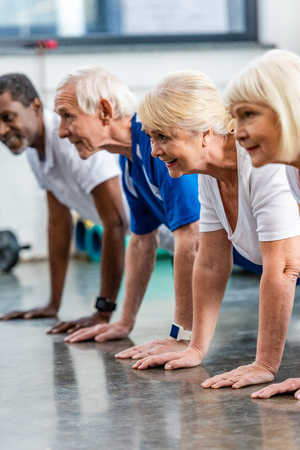Introduction to Pulmonary Rehabilitation in the UK
Pulmonary rehabilitation (PR) has become a cornerstone of respiratory care within the United Kingdom, particularly under the umbrella of the National Health Service (NHS). Designed for individuals living with chronic respiratory conditions such as Chronic Obstructive Pulmonary Disease (COPD), asthma, and interstitial lung disease, PR programmes integrate exercise training, education, and psychological support. Their aim is not only to alleviate symptoms but also to empower patients to manage their condition more effectively. In Britain, pulmonary rehabilitation stands out for its patient-centred approach and its proven impact on improving quality of life, reducing hospital admissions, and fostering independence among those affected by long-term lung diseases. The significance of PR within the NHS cannot be overstated; it is recognised as an essential intervention that bridges the gap between acute hospital care and ongoing community-based support. As the population ages and the prevalence of chronic respiratory diseases rises, the demand for effective pulmonary rehabilitation services—and well-trained teams to deliver them—continues to grow across the UK.
Core Competencies for British Pulmonary Rehabilitation Teams
Effective pulmonary rehabilitation in Britain relies on a blend of essential skills, appropriate qualifications, and strong multidisciplinary collaboration. These core competencies ensure that teams deliver high-quality, person-centred care tailored to the unique needs of patients living with chronic respiratory conditions. Below, we explore the key areas that underpin successful team performance within the UK context.
Essential Skills for Team Members
Pulmonary rehabilitation teams require a diverse skill set to address the physical, psychological, and social aspects of patient care. These skills include:
- Clinical Assessment: Ability to perform comprehensive assessments, including spirometry, exercise tolerance, and symptom evaluation.
- Exercise Prescription and Supervision: Expertise in designing and monitoring individualised exercise programmes safely.
- Patient Education: Clear communication to empower patients in self-management and lifestyle adaptation.
- Motivational Interviewing: Encouraging behaviour change through supportive conversation techniques.
- Cultural Sensitivity: Understanding and respecting the diverse backgrounds of patients across Britain.
Qualifications and Professional Standards
British pulmonary rehabilitation practitioners are expected to hold relevant qualifications and adhere to national standards. The table below summarises typical qualifications and regulatory requirements:
| Role | Essential Qualifications | Regulatory Body |
|---|---|---|
| Physiotherapist | BSc (Hons) Physiotherapy, HCPC Registration | Health & Care Professions Council (HCPC) |
| Nurse Specialist | Nursing Degree, NMC Registration | Nursing & Midwifery Council (NMC) |
| Respiratory Physician | MBBS/MBChB, GMC Registration, Respiratory Medicine Specialty Training | General Medical Council (GMC) |
| Occupational Therapist | BSc (Hons) Occupational Therapy, HCPC Registration | Health & Care Professions Council (HCPC) |
| Dietetics/Nutritionist | BSc Dietetics/Nutrition, HCPC/AFN Registration | HCPC/Association for Nutrition (AfN) |
| Pulmonary Rehabilitation Assistant/Support Worker | NVQ Level 3 Health & Social Care or equivalent experience | N/A (Supervised practice) |
Multidisciplinary Collaboration in the UK Context
The strength of British pulmonary rehabilitation lies in its collaborative approach. Team members work closely together—often within NHS Trusts or community settings—to develop integrated care pathways. Regular multidisciplinary meetings facilitate shared decision-making, continuity of care, and holistic support for each patient. This spirit of cooperation is further supported by national guidelines from bodies like NICE and the British Thoracic Society.
![]()
3. Structured Induction Programmes and Onboarding
When new team members join pulmonary rehabilitation services in Britain, they are welcomed through well-structured induction programmes designed to help them feel part of the team from the very beginning. These induction processes typically start with a comprehensive orientation that introduces new colleagues to the NHS values, local policies, and best practices relevant to respiratory care. New staff are paired with experienced mentors—often senior physiotherapists or nurses—who guide them through their initial weeks, ensuring they understand both clinical protocols and the unique needs of patients living with chronic respiratory conditions.
This mentorship is not just a formality but an essential element of professional development within British healthcare settings. It provides a safe space for asking questions, discussing complex cases, and reflecting on early experiences. Regular check-ins and feedback sessions are woven into the onboarding process, helping new team members build confidence while fostering a sense of community and belonging. Continuous support doesn’t end after the first month; ongoing learning opportunities and peer support networks are encouraged to ensure all staff remain up-to-date with evolving evidence-based practices in pulmonary rehabilitation.
For many in Britain’s long-term care sector, this structured approach to onboarding helps create resilient, compassionate teams who work collaboratively to improve patient outcomes. By valuing mentorship and continuous support, pulmonary rehabilitation services not only nurture professional growth but also reinforce the shared commitment to delivering high-quality, person-centred care.
4. Ongoing Professional Development and Learning Opportunities
Continuous professional development (CPD) forms the backbone of an effective pulmonary rehabilitation team in Britain. Accessing high-quality learning opportunities ensures that healthcare professionals remain up to date with the latest evidence-based practices, policy updates, and patient-centred approaches. The NHS trusts, professional bodies, and leading academic institutions across the UK provide a wealth of resources tailored for multidisciplinary team members involved in pulmonary rehabilitation.
Access to CPD Resources
Healthcare professionals can benefit from a wide variety of CPD activities such as workshops, conferences, e-learning modules, and seminars. Many NHS trusts offer in-house CPD sessions specifically designed for their staff, focusing on practical skills and knowledge relevant to respiratory care. Furthermore, organisations like the British Thoracic Society (BTS) and Chartered Society of Physiotherapy (CSP) regularly provide updated courses and resources to enhance professional competence.
Work-Based Learning
Work-based learning is highly valued within the UK’s healthcare system. Pulmonary rehabilitation teams are encouraged to engage in reflective practice, peer supervision, and clinical shadowing opportunities. These approaches help consolidate theoretical knowledge while fostering a culture of shared learning and continuous improvement within the team environment.
Academic Courses and Qualifications
Many UK universities offer postgraduate certificates, diplomas, and master’s programmes specialising in respiratory care or rehabilitation sciences. These qualifications are well-recognised by employers across the NHS and can contribute significantly to career progression.
Summary of Key CPD Providers
| Provider | Type of Learning Opportunity | Relevance to Pulmonary Rehabilitation |
|---|---|---|
| NHS Trusts | In-house training, clinical placements | Practical skill development, local guidelines |
| BTS & CSP | Courses, online modules, conferences | Evidence-based practice updates, networking |
| UK Universities | Postgraduate degrees/certificates | Theoretical grounding, research skills |
| Royal Colleges (e.g., RCP) | Specialist seminars, mentorship schemes | Leadership development, clinical excellence |
Cultivating a Lifelong Learning Mindset
Pulmonary rehabilitation professionals are gently encouraged to adopt a lifelong learning approach as part of their daily practice. By actively seeking new knowledge and participating in available learning opportunities—be it through formal courses or informal workplace discussions—each team member helps ensure that patients receive compassionate, effective, and evidence-informed care throughout their journey.
5. Quality Assurance and Reflective Practice
In the UK, the ongoing professional development of pulmonary rehabilitation teams is closely linked to robust quality assurance frameworks and a culture of reflective practice. Encouraging team members to regularly engage in self-reflection, clinical supervision, and structured quality improvement initiatives ensures that services remain patient-centred and evidence-based. Reflective practice allows professionals to thoughtfully assess their own experiences, learning from successes as well as challenges, and is often supported through dedicated time for journaling or peer discussion sessions. Clinical supervision, typically led by a senior colleague or external facilitator, creates a safe space for practitioners to discuss complex cases, ethical dilemmas, and personal wellbeing. This collaborative approach not only fosters individual growth but also strengthens team cohesion and resilience.
Quality improvement initiatives are another cornerstone of professional development within British healthcare settings. Teams might engage in regular audits, feedback cycles, or service user surveys to identify areas where care can be enhanced. By integrating these insights into daily practice, pulmonary rehabilitation teams demonstrate their commitment to continuous improvement and accountability. These activities are frequently embedded within NHS Trust policies and supported by professional bodies such as the Chartered Society of Physiotherapy (CSP) or the British Thoracic Society (BTS). Ultimately, a strong emphasis on quality assurance and reflective practice empowers team members to deliver high standards of care while nurturing their own ongoing learning and professional fulfilment.
6. Cultural Competence and Inclusive Care
Within Britain’s diverse communities, it is vital for pulmonary rehabilitation teams to recognise and respect the wide range of cultural backgrounds, beliefs, and values that patients bring to their care experience. Understanding these differences is not just about language or ethnicity; it encompasses awareness of religious practices, dietary preferences, family dynamics, and social expectations that can all influence a patient’s engagement with rehabilitation services. By undertaking ongoing training in cultural competence, team members are better equipped to provide equitable and person-centred care that truly meets the needs of every individual.
Culturally-sensitive practice means actively listening to patients’ perspectives and tailoring communication styles to ensure clarity and comfort. For example, being mindful of non-verbal cues or adapting educational materials to reflect local languages and customs can make a meaningful difference in how well information is understood and retained. Training should also encourage staff to reflect on their own assumptions and biases, fostering an open-minded approach that values each patient’s unique story.
Inclusive care goes beyond simply acknowledging diversity; it involves designing programmes and resources that are accessible for all. This might include offering interpretation services, engaging community health advocates, or holding sessions at locations that are welcoming and familiar to underrepresented groups. Pulmonary rehabilitation teams in the UK benefit from sharing best practices across regions, learning from local successes in reaching minority populations, and collaborating with organisations championing equality in healthcare.
Ultimately, investing in cultural competence helps to break down barriers to participation in pulmonary rehabilitation. When patients feel respected and understood, they are more likely to trust their care team, attend sessions regularly, and achieve better health outcomes. Ongoing professional development in this area ensures that British teams remain responsive to the evolving needs of their communities, upholding the principles of fairness and dignity at the heart of the NHS.
7. Future Directions and Challenges for Team Development
As pulmonary rehabilitation teams across Britain look ahead, several emerging trends and ongoing challenges shape the landscape of training and professional development. The integration of digital skills has become increasingly vital, especially as the NHS and wider healthcare sector embrace telehealth, remote monitoring, and digital record-keeping. Teams must ensure all members are digitally literate, able to confidently use new technologies while maintaining a compassionate approach that is so valued in British care settings.
Staff retention continues to be a significant concern. High workloads, emotional demands, and ongoing pressures within the NHS can lead to burnout or staff turnover. Fostering a supportive environment—where team members have access to wellbeing resources, opportunities for career progression, and regular reflective practice—is crucial for sustaining a stable workforce dedicated to quality patient care.
Emerging trends also highlight the growing importance of interdisciplinary learning and collaboration. The most effective pulmonary rehabilitation teams draw on diverse expertise, from physiotherapy and nursing to psychology and occupational therapy. Ongoing training must therefore emphasise not only clinical skills but also communication, shared decision-making, and cultural competence to meet the needs of Britains increasingly diverse population.
Moreover, there is a call for more personalised professional development pathways. By tailoring training opportunities to individual aspirations and areas of interest, organisations can nurture talent, improve job satisfaction, and encourage long-term commitment among team members. This approach aligns well with the ethos of British healthcare—valuing each practitioner’s unique contribution while ensuring cohesive teamwork.
The future holds both promise and complexity for pulmonary rehabilitation teams in Britain. Navigating rapid technological change, supporting staff wellbeing, and championing inclusive teamwork will require thoughtful leadership and continued investment in professional development. Through these efforts, teams can remain resilient, responsive, and ready to deliver high-quality care for people living with respiratory conditions across the UK.


